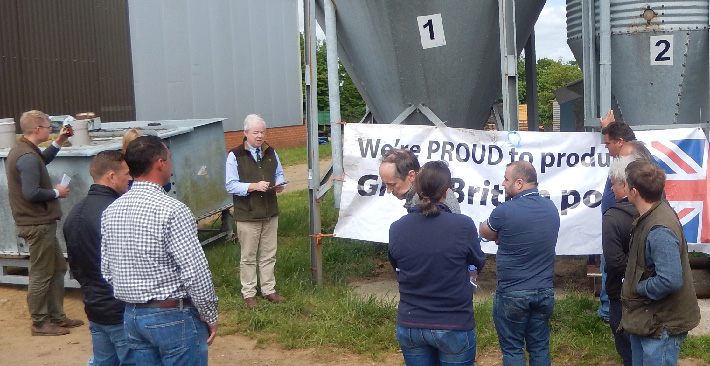Very little to shout about in the pig trading world today, with prices mainly in retreat and the SPP falling another 0.53p to 139.49p followed by weekly contribution prices most of which lost around a penny and are now between 1.27p and 132p in the main.
The only slightly comforting note comes from Germany where their influential producer price has remained at €1.36 for the 15th week running, but in sterling terms this only represents around 119.6p/kg which underlines the problem we are facing with much cheaper imported pig meat hitting these shores.
Spot trades were very thin on the ground with fresh meat demand reported to be extremely fickle and more a case of not enough demand rather than too many pigs and as a result, spot bacon was generally traded in the 128p-130p range which is unfortunately at least 40p/kg below COP levels.
Despite all the Brexit related chaos hitting the financial markets, for some reason the pound actually strengthened in value during the week, which meant that the EURO traded on Friday worth 88.13p compared with 90p a week ago and this had the effect of knocking back cull sow prices once again.
Export sow buyers were offering in the 55p-58p range in most cases adding yet more pain to producers’ profit and loss accounts.
Weaners still remain very much a buyers’ market despite the latest AHDB 30kg average improving by 25p to £47.59 and the 7kg average up by 0.89p to £36.96, and the gap between Red Tractor and RSPCA assured weaners continues to widen.
If however, finished pig prices stage a recovery as they often do in the March/April period, this could help to lift weaner values but until that occurs it is a case of more of the same.
Grain prices have however eased a shade with wheat futures closing back a touch, with London wheat traded at £172.15/t for February and £176.55/t for July. Changes in UK wheat futures prices have been partly due to currency volatility with a strengthening pound. Further falls in grain prices would at least be a positive signal as far as pig meat production costs are concerned which remain under pressure with a significant number of producers now operating in negative territory as far as COP levels are concerned.
And finally, the AHDB has warned of the serious effect which reports of declining red meat consumption in the UK could have on the industry as a whole.
These fears have not been helped by the recent publication of the “EAT-Lancet report recommending that consumers switch from meat consumption to more plant-based proteins as well as the effect which some claim meat production is having on our carbon footprint. In addition to the reported drop in red meat consumption, we also have the chaotic Brexit situation to cope with, where unfortunately there are more questions than answers!




